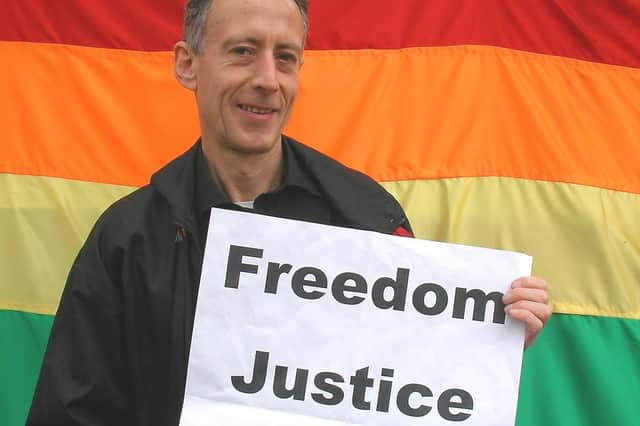Chichester: Human rights campaigner Peter Tatchell shares his journey from Christianity to humanism


The director of the Peter Tatchell Foundation, Peter will speak in The Council House, North Street, on Tues, June 14 at 7pm (tickets from the Festival of Chichester).
“I was brought up in a devout Pentecostal Christian family. Our lives revolved around the family and the church. I totally believed what I was taught as a child because I had no other reference point. It was when I went to high school that I began to question Christian orthodoxy and eventually around the age of 19 or 20 I gave up my faith and embraced humanism. I found a scientific rational understanding of the world was more accurate and useful than an understanding based on religious dogma and superstition. And that’s the philosophical basis for all my ideas as an activist.
Advertisement
Hide AdAdvertisement
Hide Ad“I gave up my faith because I found I didn't need God anymore. I was intelligent and confident and mature enough to live without the security blanket of religion and irrational thought. I am an atheist and a humanist. I embraced reason and science and ethics which are based on love and compassion. You don't need God to tell you what is right or wrong. We humans are quite clever enough to figure it all out for ourselves, as exemplified by the Universal Declaration of Human Rights. It is a great example of high moral values without religion.”
And in that respect, Peter remains an optimist, just as he always has been: “I love other people and I love freedom and justice and equality for everyone. That is my motivation and that's what keeps me going. I have had moments of despair but I know that in the long run we will succeed.” There are plenty of things which are absolutely depressing: “But we do go two steps forward and one step back and that is still a gain. I am a 1960s idealist. I'm ever optimistic with the firm belief that a better Britain is possible. The most recent British Social Attitudes Survey showed that 16 per cent of the British population believe that homosexuality is wrong. That's down from two-thirds in the late 1980s but it still represents almost a fifth of the British public. We are striving to change that by combining education and campaigning and lobbying government and also protesting when necessary. When I began campaigning five decades ago, Britain was a very different country. There had been a partial decriminalisation of male homosexuality in 1967 but following that, police harassment of LBGT+ people increased by 400 per cent, and until 1999 Britain continued to have the largest number of anti-LBGT+ laws of any country in the world.”
Things improved considerably after 2000: “From that year we had an astonishing pace of reform with so many homophobic laws being repealed.”
But in the last decade things have slipped back considerably, Peter says.